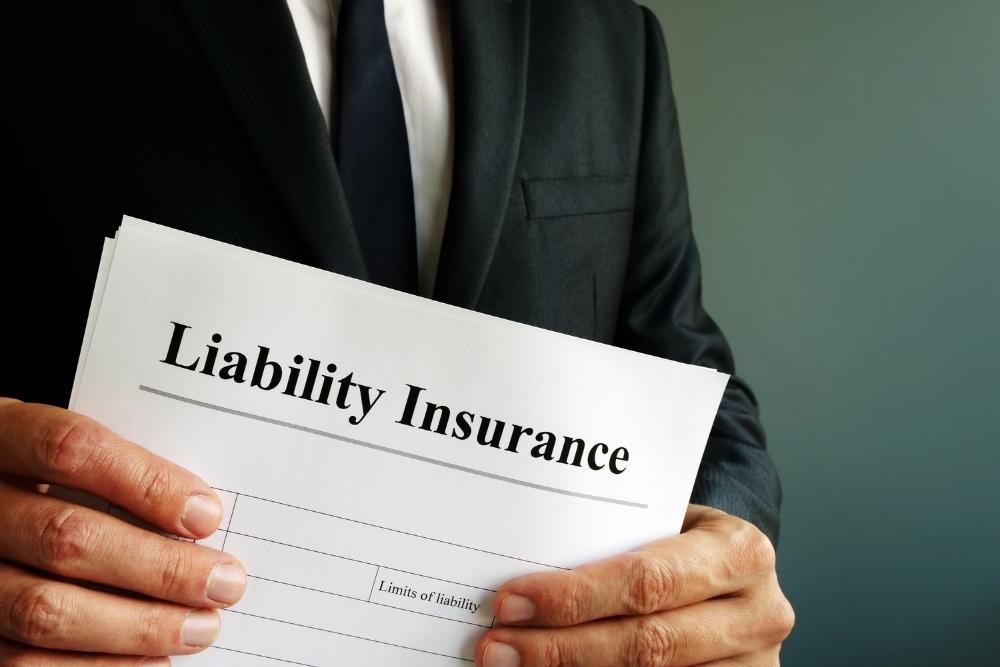Comments
- No comments found

Contractors, let's face it: running a successful business is about more than just your skills with a hammer or your eye for detail.
It’s about covering your bases, protecting your assets, and making sure you're prepared for whatever life throws your way. And one of the biggest things that can help you sleep soundly at night? Liability insurance. But what types do you need, and how do you choose the right coverage for your business? Let’s dive in and break it down together.
First things first, what exactly is liability insurance, and why is it so important for contractors? In simple terms, liability insurance is your financial safety net. It’s there to protect you when things go wrong, and in the contracting world, things can go wrong pretty quickly. From accidental damage to a client’s property to someone getting injured on your job site, there’s a lot at stake.
So, why does this matter to you? Well, imagine finishing up a job only to find out a week later that a client is suing you because of water damage caused by a faulty installation. Without liability insurance, you’d be paying those costs out of your pocket, which could seriously hurt or even bankrupt your business. That's why having the right insurance isn't just a nice-to-have; it's a must.

Now that we’ve established why liability insurance is crucial, let’s talk about the different types you need to consider. Not all insurance is created equal, and depending on your specialty, you might need different kinds. Here are the big ones:
Think of general liability insurance as your basic shield. It covers common risks like bodily injuries, property damage, and even advertising injuries. Did a client trip over a tool you left out and break an ankle? Covered. Did a paint spill damage a client’s expensive rug? Also covered. This type of insurance is a no-brainer for any contractor, regardless of the work you do.
Are you a contractor who offers design services or gives advice to clients? Professional liability insurance, often called Errors and Omissions (E&O) insurance, is for you. This policy covers claims of negligence, errors, or omissions in the services you provide. Maybe you suggested a certain material that didn’t hold up, or there was an oversight in the planning stage—this insurance has got you covered. It's like having a second layer of protection, ensuring that even if you make a mistake, you won’t be left hanging out to dry.
If you have employees, workers’ compensation insurance is not optional—it’s a requirement in most states. This insurance covers medical expenses and lost wages if one of your workers gets injured on the job. Imagine someone falls off a ladder or gets a nasty cut while working on-site. Without workers’ comp, you could be personally liable for their medical bills and lost wages. And let’s be real: no one wants that headache.
Do you have a van or truck you use for work? You’ll need commercial auto insurance. Your auto policy likely won’t cover you if you’re using your vehicle for business purposes. This insurance covers any accidents that happen while driving for work, whether you’re hauling materials or heading to a job site. Plus, if your vehicle is an essential part of your business, you'll want to protect it properly.
Now, what if you could have a one-stop shop for all your insurance needs as a contractor? That’s where contractor insurance comes in. This is a package policy designed specifically for contractors, bundling different types of coverage like general liability, professional liability, and sometimes even workers’ comp or commercial auto. It's a customizable option that lets you pick and choose what’s necessary for your business.
Okay, so now you know what types of insurance are out there. But how do you choose the right ones for your business? Here are some tips to help you make the best decision:
Assess Your Risks: Take a good, hard look at your business. What kind of work do you do most often? What are the biggest risks associated with that work? If you’re primarily doing roofing, your risks might include falls and damage from water leaks. If you’re a general contractor, your risks could be more varied. Knowing your specific risks will help you determine which insurance policies are most important for you.
Consider the Size and Scope of Your Projects: Are you working on small, one-off jobs, or do you take on large, multi-month projects? The bigger the job, the bigger the risks—and the more insurance coverage you may need.
Understand Client Requirements: Many clients, especially large corporations or government entities, will require you to have certain types of insurance before you can even step onto the job site. Make sure you know what these requirements are upfront, so you don’t miss out on work because you’re underinsured.
Shop Around: Don’t just go with the first insurance quote you get. Shop around, compare policies, and talk to the best providers. For instance, you could consider options like contractor insurance by Next, which offers tailored policies for various types of contracting work. They can help you navigate the complexities and find the best deal for your specific needs.

Nobody's perfect, and when it comes to choosing insurance, contractors are no exception. Here are some common mistakes to avoid:
Underestimating Coverage Needs: It’s easy to think, "Oh, that’ll never happen to me." But accidents and lawsuits can happen to anyone. Don’t skimp on coverage just to save a few bucks—it could cost you big time in the long run.
Not Updating Your Policies: Your business isn’t static, and your insurance shouldn’t be either. If you’re taking on larger projects, hiring more employees, or expanding your services, make sure your insurance coverage reflects these changes.
Ignoring Policy Exclusions: Not all insurance policies are created equal. Some have exclusions that can leave you high and dry in certain situations. Make sure you understand the fine print so there aren’t any surprises when you need to file a claim.
Lacking Proper Documentation: When it comes to insurance claims, documentation is everything. Make sure you keep all necessary paperwork, from contracts to receipts to photos of the job site. It’ll save you a lot of headaches if you ever need to file a claim.
Having the right insurance isn’t just about avoiding catastrophe. It’s also a smart business move that can help you build trust with clients, protect your financial health, and stay in compliance with legal and contractual obligations. Plus, it gives you peace of mind. And when you’re not worried about “what ifs,” you can focus on what you do best—running your business.
Clients want to know they’re working with a professional who takes their business seriously. By having the right insurance, you’re showing them that you’re prepared for anything and that you care about protecting their interests as well as your own. This kind of professionalism can set you apart from the competition and help you win more jobs.
Leave your comments
Post comment as a guest